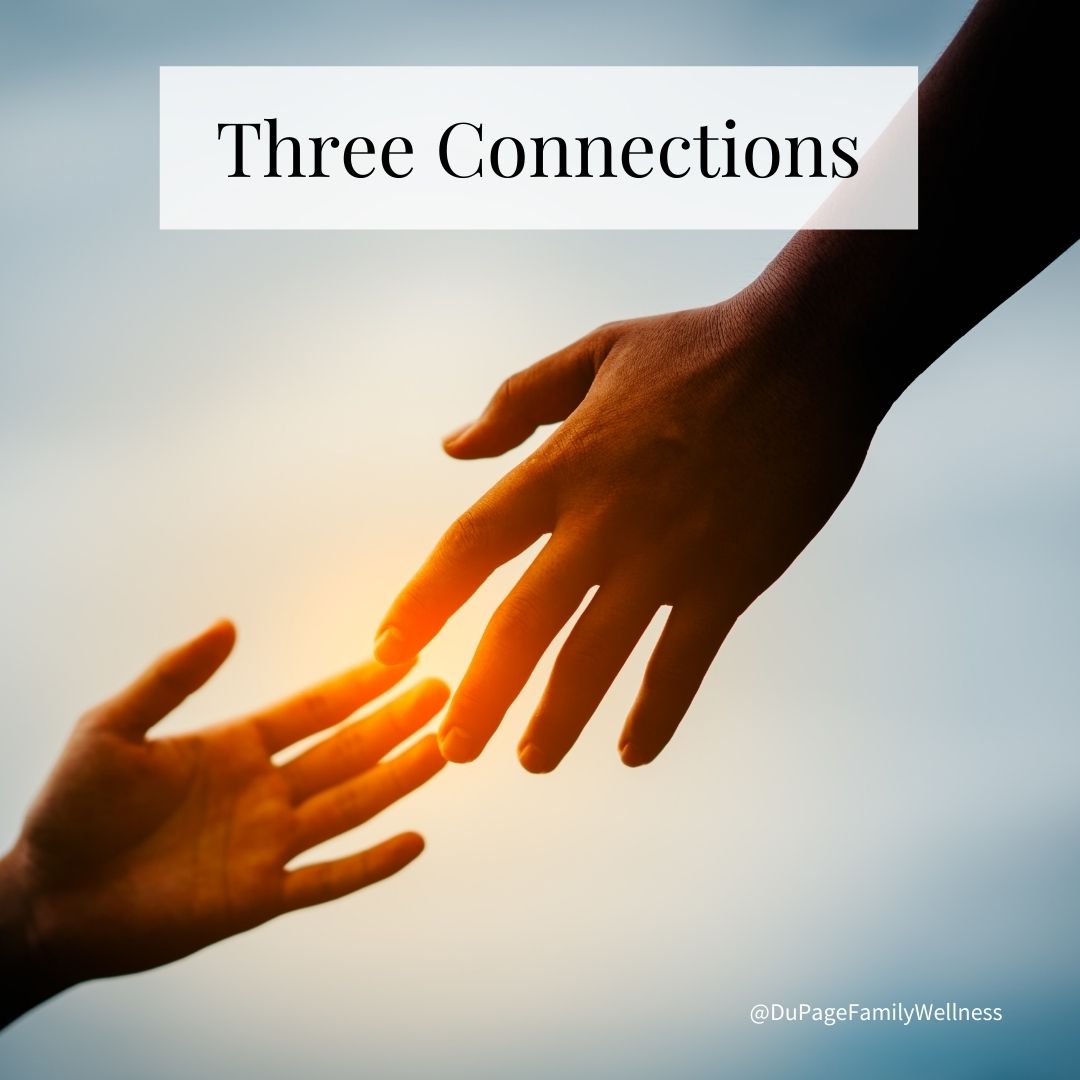 There are many things people know they must do if they want to be healthy: eat well, get adequate movement, refrain from smoking, and limit alcohol. But now we can add “enjoying social connections” to our list of healthy habits!
There are many things people know they must do if they want to be healthy: eat well, get adequate movement, refrain from smoking, and limit alcohol. But now we can add “enjoying social connections” to our list of healthy habits!
Research is showing that social connections have a major impact on both our mental and physical health. It is not hard to believe that those who feel more connected with others tend to struggle less with anxiety and depression. They also have higher self esteem, greater levels of empathy, trust others more, and tend to be more cooperative.
While the impact of social connections on emotional wellbeing may be expected, the extensive impact on physical health may come as a surprise to many.
Let’s take a look at this dynamic so that you can lean into the benefits of social connections.
Social Connections Impact of Physical Health
According to Dr. Emma Seppala, the American Association for the Advancement of Science published a study that found that “a lack of social connection is a greater detriment to health than obesity, smoking and high blood pressure.”
A lack of social connections has been linked to obesity levels, inflammation, and hypertension. It may be shocking, but strong social connections actually improve your immune system and lead to a 50% increased chance of longevity.
More research is needed to discover why social connections have such a dramatic impact on health, but the research is clear that social connections are extremely important if you want to live a long and healthy life.
What’s at the Core of Social Connection
Researcher and author Brene Brown defines connection “as the energy that exists between people when they feel seen, heard, and valued; when they can give and receive without judgment; and when they derive sustenance and strength from the relationship.”
You don't necessarily need to be physically close with someone to have a social connection. If you feel seen, heard, and understood, that is enough to feel connected to another person. This type of connection can be done through phone conversations, zoom calls, emails, etc.
At the same time, it’s important to recognize that it is possible to feel isolated and alone, even if you are surrounded by people. This can be a confusing feeling, because we often believe that we “shouldn’t” feel lonely when we are surrounded by people. But just because we are with people doesn’t mean that we feel seen, heard, and understood.
How to Set Yourself Up for Connection
Our society tends to be pretty distracted and fast paced. This can make social connections hard to come by. But there are some simple things that you can do to increase your chances for a good connection.
The first is pretty simple. Make time for important people in your life. If you are lucky enough to have people that you connect with on a deep level, make them a priority. It might look different than it used to, but hanging out on the patio, connecting on a video call, or simply having a conversation on the phone can cultivate closeness.
When you are with them, make connection a priority. This may include putting your cell phone away when you are connecting in person. Research has found that the presence of a cell phone can interfere with feelings of closeness and connection. It can also lead to distraction and keep you from enjoying the moment.
Connecting with Yourself
Don’t forget that connecting to yourself is extremely powerful. While everyone needs this important connection, it can be an especially important tool for those combating loneliness.
Part of connecting with yourself is slowing down enough to notice what is going on internally. This may mean going for a relaxing walk, laying in a hammock, or doing meditation - as long as the activity doesn’t become a distraction.
When you slow down, you may feel many emotions. Some emotions may feel good - happiness, peace, excitement, etc. But other more difficult emotions may appear as well. It is important to accept these emotions without judgement or an attempt to change them.
Accepting all of our emotions is the first step in working through the difficult ones. Emma Seppala, Ph.D, points out that children “often give free reign to their emotions... (but) children also get over negative emotions extremely quickly.”
She continues to explain that “adults, in an attempt to bury and control their emotions often carry them with them for years. Allowing the emotion to arise and giving it our full attention may be a key to letting it go.”
Connecting with Nature
Sometimes good social connections are difficult to find. In those times, Seppala recommends connecting with nature.
According to Seppala, “A recent study shows that taking walks in nature can increase our well-being even in the case of depression and another study showed that exposure to nature increases our value of connectedness and closeness and even makes us more caring and ready to share with others.”
Connections to others, yourself, and nature can have a positive impact on your emotional and physical health!
For more great ways to improve your social connections check out the National Institute of Health’s Social Wellness Toolkit. I hope you find ways to connect with yourself, others, and nature during these crazy times!
Dr. Jamie

